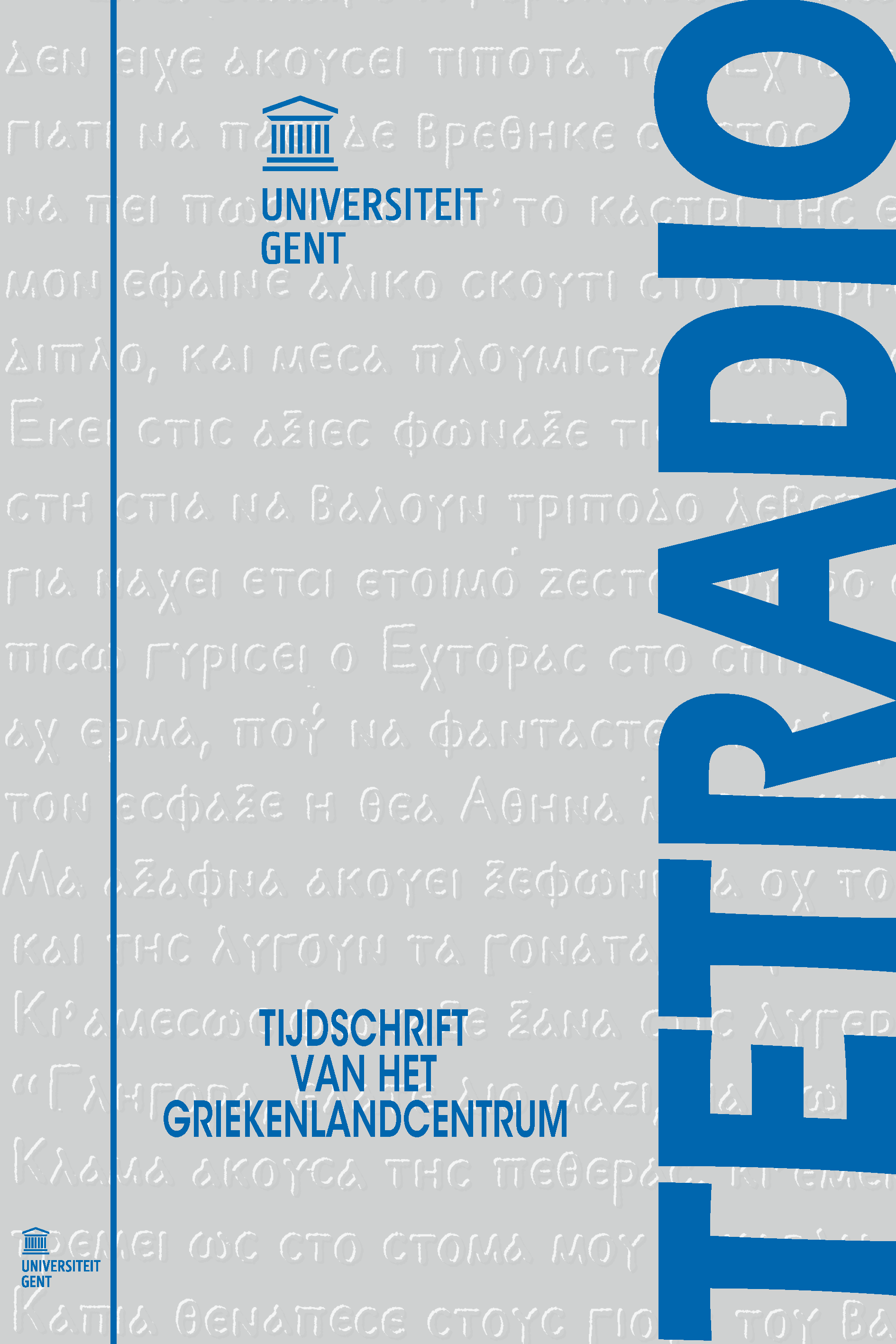Onsterfelijkheid in fragmenten: De 'Aetia' van Callimachus: teloorgang en reconstructie
Abstract
In this article the ironies of the transmission of the text of Callimachus’ long and innovative elegy, the Aetia, are briefly sketched. Claimed by its author to be a discontinuous and fragmentary poem, it ended up in countless diminutive fragments after its manuscript got lost during the fall of Constantinople. Nevertheless, much like the paradoxical figures in the Aetia itself, in particular the Lock of Berenice and the deceased Simonides, who both seem to address the readers of the Aetia as disembodied speakers, Callimachus’ poetry now once more has the chance of speaking to us, in the excellent new edition of his Aetia by professor Annette Harder (Oxford University Press, 2012).
How to Cite:
Klooster, J., (2013) “Onsterfelijkheid in fragmenten: De 'Aetia' van Callimachus: teloorgang en reconstructie”, Tetradio 22(1): 7, 139–149. doi: https://doi.org/10.21825/tetradio.91830
Downloads:
Download PDF
View PDF

